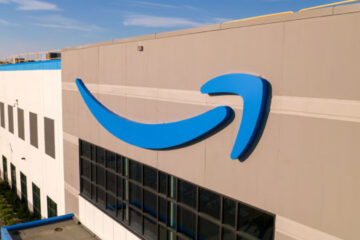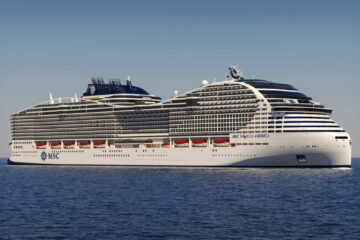The 2024 Olympics, in full swing, has transformed Paris with heavy security measures and high costs.
Hosting the Olympics is an attractive draw for any city, but it is a gamble nonetheless, and Paris has placed large bets on it being a success. The Olympics are expected to generate between $7.4 and $12 billion this year, but as of right now, local businesses, airlines, and hotels are struggling. Delta CEO Ed Bastian revealed that the company is staring at a $100-million loss, according to a new interview with CNBC.
Now, the city is seeing empty hotel rooms and half-full flights. Hotels are slashing prices by as much as 41% to regain bookings.
Related: Delta CEO flags a trend that is draining the company’s pockets
Paris, the city of barricades
For the past month, security measures have transformed the City of Love into an assortment of barricades, closed doors, including 44,000 6-foot metal fences.
An empty restaurant terrace behind security fencing in the red zone ahead of the Olympic Games in central Paris, France, on Thursday, July 25, 2024.
Public transportation is overcrowded, and local businesses are losing their appeal as nobody wants to eat at a cafe with a barricaded metal view. In order to get around the city, residents and tourists alike must provide specific QR codes for access.
Access to the Eiffel Tower and surrounding area is restricted or prohibited, and the Seine River has been under high surveillance and restrictions in preparation for Friday’s monumental opening ceremony.
Public signs displayed on a fence set up along the Seine. (Photo by JOEL SAGET/AFP via Getty Images)
The river is a central feature of the city, French life, and culture, making it an optimal but extremely complicated location for the ceremony.
Security feared an attack leading up to the ceremony, as this was an unprecedented location outside of an Olympic arena. Friday was the most significant day of travel and transportation for the Olympics, as waves of tourists flowed in and Parisians fled.
In preparation for the monumental ceremony, Paris halted to a standstill as roads and bridges across the city were closed and security measures amplified.
Related: AI athletes take the field thanks to $600 from EA Sports
The head of the city’s police, Laurent Nunez, released a statement before the ceremony, appealing for Parisians to park their cars by 10 a.m. and stay home from 3 p.m. unless they had the pass required to watch the ceremony on the Seine.
The opening ceremony’s security fears materialized just hours before the ceremony began, as arson attacks dimmed the spirit of the City of Lights. France’s rail network was hit by a series of connected arson attacks, leaving as many as 800,000 people impacted throughout the weekend.
More Travel:
Disney World shuts down classic ride amidst controversyBoeing to get off easy for 737 Max crashes, victims’ families sayMargaritaville and Virgin offer a new take on cruises
The Olympic cost
Hosting the Olympics is an opportunity to showcase a city on a global stage and leverage the financial opportunities present, but more often than not, reality falls short of these expectations and excitement.
Beijing and Tokyo faced huge costs from hosting their Olympic games, with Beijing generating $3.6 billion but costing $38.5 billion and Tokyo generating $5.8 billion but costing $13 billion.
Brazil’s 2016 Rio Olympics cost over $20 billion, and it was left to take out a $900 million bailout to cover the post-olympic recession.
Los Angeles, the next host of the Summer Games, is the only modern success story to have hosted the Olympics in 1984. Their approach of leveraging student dorms and existing infrastructure left them with a budget surplus of over $200 million.
Eric Garcetti, former mayor of Los Angeles, emphasized the importance of integrating the Olympics into a city instead of reshaping it for Olympic demands. “Think about your city first and invite the Games to be a part of that,” he advised.
Related: Veteran fund manager sees world of pain coming for stocks


